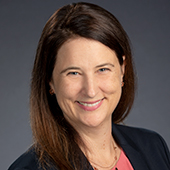The short film “Deaf Capo” tells the story of Leo Bopp, a devoted Austin FC supporter who has become a staple of the community thanks to his rousing ASL cheers. As a capo, Bopp acts as a cheerleader of sorts for the team and its fans. He also works within the La Murga de Austin, the community band supporting the club. Bopp has become a fan favorite and an inspiration to the local deaf community.
College of Education faculty Aaron Rochlen and Stephanie Cawthon have been earning raves for the film. Both professors in the Department of Educational Psychology, they collaborated on this project, with Rochlen directing and Cawthon acting as executive producer. The film was a finalist for both the International Sport Film Festival and the Texas Short Film Festival and has been in consideration for nearly a dozen festival and short film awards including the upcoming Austin Micro Film Festival and Texas Short Film Festival.
“Deaf Capo” will be screened at the Rehabilitation Psychology Conference on February 23 as part of this year’s Disability and the Arts program. Cawthon, Rochlen and Bopp will attend the screening and answer questions at a Q&A event, before heading to the stadium the next day for the Austin FC season opener.
We spoke with Drs. Rochlen and Cawthon about their experience making the film and their personal connections to both Leo Bopp and the Austin FC community.
Aaron Rochlen: I’ve always been intrigued by films and telling stories, especially in short form. My first dive into micro-films was about Daniel Johnston and the use of one of his songs, “True Love Will Find You in the End,” as one of the closing anthems at professional soccer games.

Stephanie Cawthon: I grew up backstage in theatres, helping my father who was an actor and director, mostly on college campus productions. When I went to college myself, that passion continued, and I worked in lighting, set design, tech crew, and most importantly, stage management. In my role at UT Austin, I am often either in front of the camera doing ASL presentations or behind the scenes supporting others as they develop videos and instructional materials that aim to support disabled people and their success. When I was Director of the National Deaf Center we created a series of videos called #DeafSuccess – real stories from real deaf people out in the world. In more recent years, I have led a team of deaf colleagues as we make American Sign Language translations of academic assessment items — my expertise in testing, production and the deaf space all come together.
AR: My roots in the soccer community and Austin FC run deep! We are involved in a soccer non-profit called Soccer Assist and went to those (infamous) soccer council meetings to advocate for bringing MLS to Austin. I’m a big believer in the intersection of community with professional sports and how each is essential to the other! And of course, we have season tickets. The games are a blast, win, lose or tie.
SC: Aaron is how I first got hooked on Austin FC! I am very impressed with the culture of the club and its supporters. When my brother, who is an avid sports fan, came to town, he was wowed by how engaging and personalized the whole Austin FC experience was. Learning from the people who are deeply involved in this community sports space has been a real source of joy for me in the last couple of years.

AR: I have always dipped my feet into the supporter’s section culture, and I’ve been fortunate enough to meet several of the key leaders in La Murga de Austin and Los Verdes from our days advocating for and celebrating with the team. Through those experiences, I first saw and met Leo. He’s just kind of a magnetic and mysterious guy. I loved his signing of the songs; my sister is an ASL interpreter, and I just couldn’t believe how expressive he was. It didn’t take me long to realize how intriguing of a story it is that a guy who can’t hear is in some ways the leader of the band and one of the most dedicated fans in the stadium. It’s a story about Leo and supporter culture but it’s also a story about all of us, about our passions and about how we are embracing them even if from the outside they don’t seem like a natural fit. He has certainly challenged me to think outside of my own roles and reflect inward on my passions.
SC: I came to know about Leo’s story through Aaron! More broadly, and for me, brought about by participating in this production, there are some complexities around sharing stories of deaf people in a predominantly hearing world. I’ve written extensively about my own processing of these challenges, as well.
SC: My passion for the last 30 years has been to amplify and connect to and with the deaf experience in education. My own journey as a deaf person has not been seamless, that’s for sure! I especially appreciated the collaborative nature of the team, and how we had professionals who were also deeply committed to sharing this story with a high-quality but very accessible approach. This emphasis on centering disabled perspectives, having high expectations, and creating inclusive and accessible spaces is a deep part of both my previous work with Collaborative for Access as well as my current role in the National Disability Center. And of course, I love being a part of projects that spotlight the humanity and amazingness that we don’t always get to see; most stories about deaf people are from a place of pity, but this one shows that being deaf is a strength and that communities come together across our many different ways of interacting with the world.
AR: As an educator, I’ve always valued inclusiveness and bringing in voices that might not always be heard, or that need to be heard in different ways. This is a story of passion, inclusivity and creativity. Hopefully, I’ve integrated those concepts into the short film and some of my roles at the university. I think it’s also helped me learn how to share stories and concepts in a brief way. I try to never purely lecture for more than 10 minutes without interaction, so with a movie, I’m drawn to the short film category.
AR: There is an interesting backstory to this. We weren’t allowed to show any game footage or players, so our focus always had to be on the stands. And even that had to receive full permission for use by the Major League Soccer offices. They approved this usage and loved the story. With that said, this isn’t a soccer story, but it’s a story about Leo, the capos more broadly, and how much the game means to its fans and the city at large. Plus, in the stands, the fans always win; the win is just a bit better tasting after the victory. But that’s what makes it so special.
AR: The word capo translates loosely from the Italian word for “boss.” In soccer specifically, the capos’ purpose is to fire up the fans and to direct some of the chants in unison with the band and the supporters. They tend to be ambassadors for the team and their fans in the community. People know the capos and most say it’s an honor to have this role. It’s also unique in that they face the fans, not the game and of course stand and chant the entire time. It’s awesome but intense. Capo exhaustion is real.
SC: One thing that stood out from the video is how much the deaf fans felt connected to Leo and to have one of their own providing direct access to the flow and vibe of the game itself. Deaf people are underrepresented in so many spaces, and it’s always notable when one of our own is part of what is traditionally a hearing-only space. There is so much implicit bias against deaf people that sometimes it takes an exceptional moment like this one to help us all think differently not only about what it means to be a capo, but what it means to be deaf. It was also important that we had a deaf videographer, Andres “Flash” Otalora, on the production team. There are many things about how films are made and edited that are different with visual language.
AR: We have won a number already and have been finalists in several others! It’s currently on YouTube, so anyone can watch it. The upcoming local screenings will be at the Austin MicroFilm Festival and the Austin Short Film Festival.

